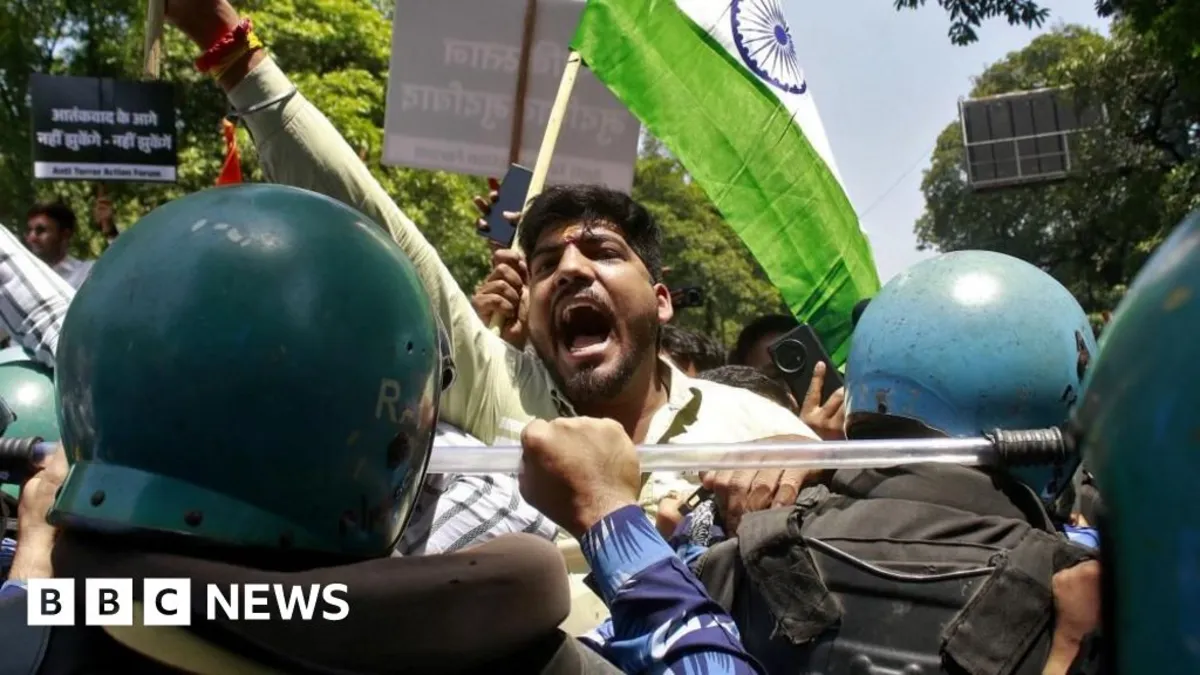
In a significant escalation of tensions, Pakistan has enacted a series of retaliatory measures against India following a deadly militant attack in Indian-administered Kashmir that resulted in the deaths of 26 tourists. The Pakistani government has immediately suspended all visas granted to Indian nationals under an exemption scheme, expelled several Indian diplomats, and closed its airspace to Indian flights. These actions underscore the rising hostilities between the two neighboring countries.
Indian police have identified three of the four suspected gunmen involved in the attack, stating that two are Pakistani citizens and the third is a local Kashmiri man. The assault took place near Pahalgam, a popular resort in the contentious Himalayan region, where the gunmen opened fire on tourists. Police reports indicate that all three suspects are affiliated with Lashkar-e-Taiba (LeT), a militant group based in Pakistan. However, none of the accused have yet responded to these allegations. Pakistan has firmly denied any involvement in the shooting, with the country's National Security Committee dismissing attempts to connect the attack to its territory as unfounded.
In response to the tragic events, Indian Prime Minister Narendra Modi vowed to track down and punish every terrorist and their supporters, promising that they would face consequences beyond their imagination. Modi expressed that the attack was an affront to India's soul, asserting that the spirit of the nation would remain unbroken despite such acts of terrorism.
Following the attack, Indian authorities announced a series of diplomatic responses aimed at Pakistan. These measures include the immediate closure of the Attari-Wagah border, a key crossing point between the two nations, and the cancellation of visa services for Pakistani nationals. In a further escalation, India has also suspended its compliance with the Indus Water Treaty, a critical agreement governing water-sharing between the countries, stating that any attempts by Pakistan to interfere with the water supply would be treated as an Act of War.
In retaliation, Pakistan has responded by closing its airspace to all Indian-owned and operated airlines and halting all trade with India. Additionally, Islamabad has reduced the number of diplomats at the Indian High Commission in the country to 30 and has requested the departure of Indian defense, naval, and air advisers by April 30.
The recent violence has prompted a crackdown in Kashmir, with approximately 1,500 individuals detained for questioning in relation to the attack. Following a period of lockdown, schools and businesses are beginning to reopen across the region, although the atmosphere remains tense. The police have announced a reward of 2 million rupees (approximately $23,000 or £17,600) for information leading to the capture of the attackers.
The attack claimed the lives of visitors from various states in India, including an Indian naval officer on honeymoon, a tour guide who was the sole provider for his family, and a businessman traveling with his wife and children. The incident has sparked widespread outrage and despair throughout the region, leading to an all-party meeting in Jammu and Kashmir that expressed deep shock and condemnation of the attack, labeling it as barbaric.
The situation remains fluid, and the potential for military escalation between India and Pakistan looms large as both nations navigate through these troubling developments.